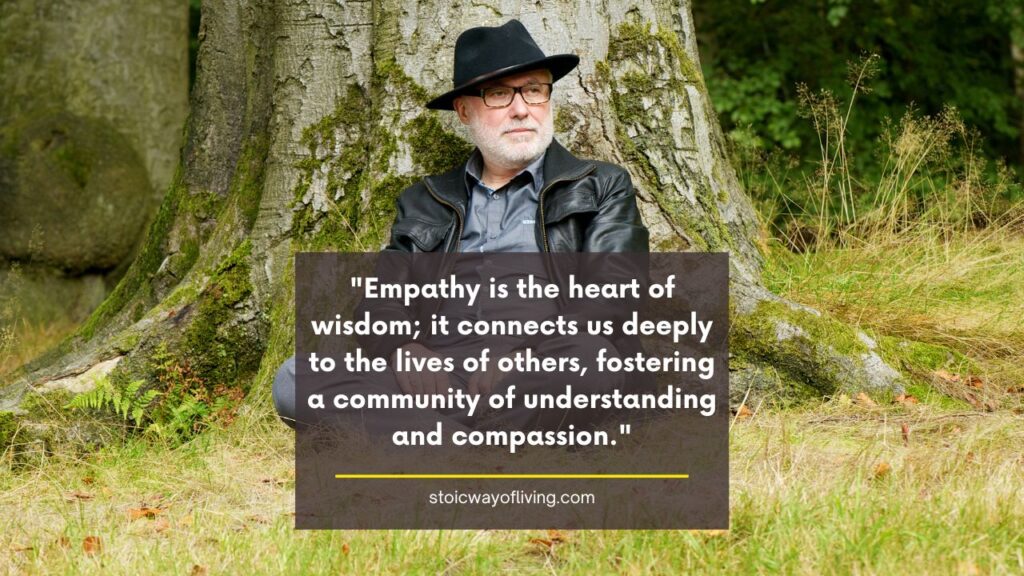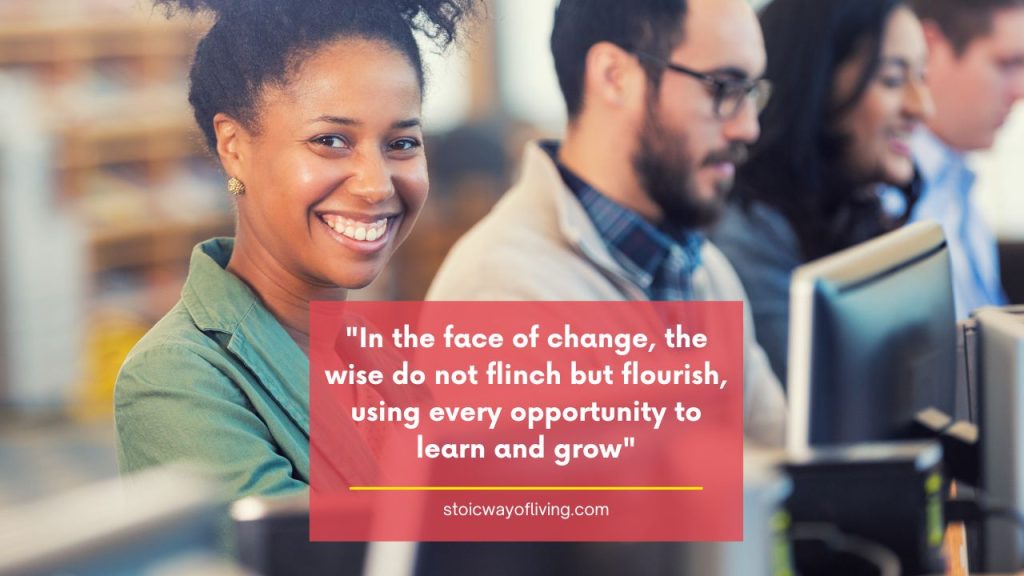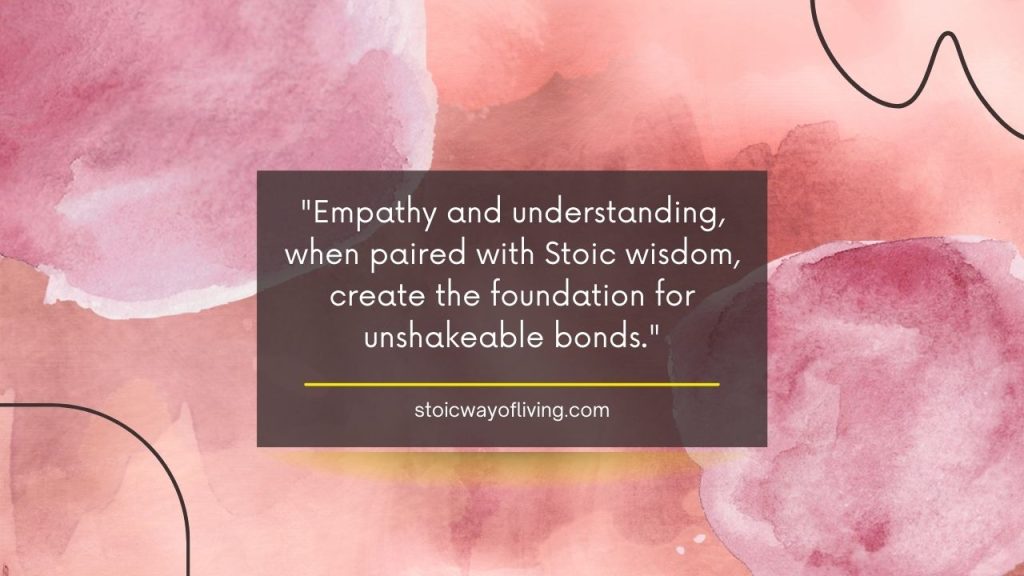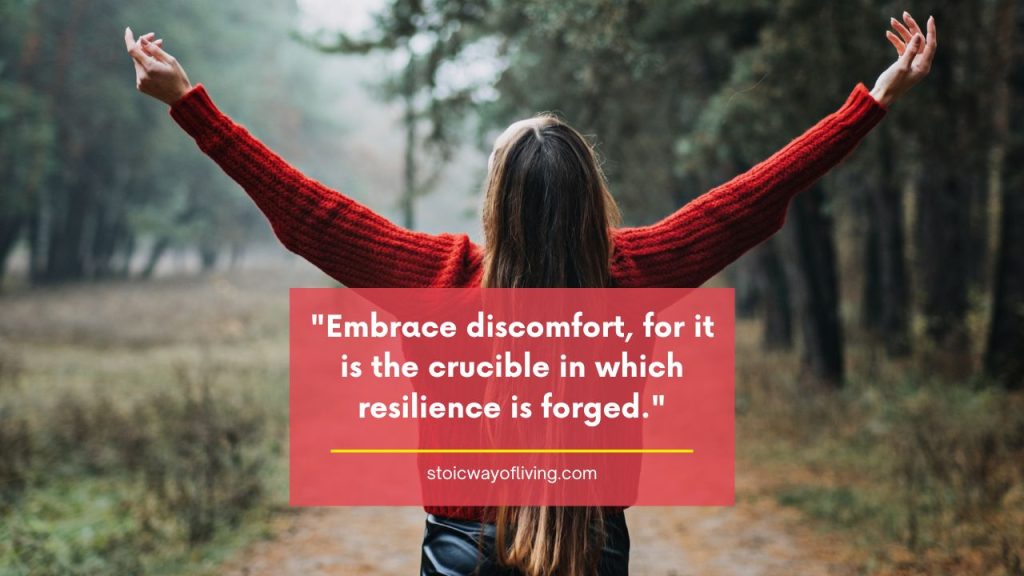Wisdom, a highly esteemed virtue, transcends simple knowledge or intelligence. It is a sophisticated blend of experiences, insights, and deep understanding that guides sound judgment and decision-making.
Unlike knowledge, which can be accumulated, wisdom must be cultivated through reflection, empathy, open-mindedness, and a conscientious approach to daily life.
This article explores how regular, thoughtful practices can develop a profound depth of wisdom, transforming how we perceive and interact with the world around us.
Understanding Wisdom

Wisdom is characterized by cognitive, reflective, affective, and prosocial dimensions.
It involves the intellectual grasp of complex concepts and the emotional maturity to reflect on personal experiences, empathize with others, and contribute positively to society.
Psychology Today notes that wisdom enables individuals to make informed decisions, manage stress effectively, build relationships, and contribute to a sustainable future.
The Dimensions of Wisdom

Wisdom is a multi-faceted construct that integrates various dimensions, each contributing uniquely to the holistic understanding and application of knowledge in practical, emotional, and social contexts.
These dimensions are cognitive, reflective, affective, and prosocial, and they interact to shape a wise individual’s behavior and decision-making processes.
Cognitive Dimension
Wisdom in the cognitive dimension involves more than just information acquisition. It encompasses the analytical application, critical evaluation, and creative synthesis of knowledge.
Cognitive wisdom allows individuals to navigate complex situations and solve problems effectively.
Research has shown that cognitive strategies such as seeking diverse perspectives and evaluating alternatives are more common among older adults, suggesting that life experiences significantly enhance this aspect of wisdom.
Reflective Dimension
This dimension is centered around introspection and self-awareness. It encourages individuals to reflect on their experiences and the broader consequences of their actions.
Reflective wisdom fosters a deeper understanding of one’s values, motivations, and emotional responses.
Studies indicate that people with high levels of reflective wisdom tend to have better emotional regulation and can adapt their behaviors based on their reflections, which leads to more meaningful personal growth and resilience.
Affective Dimension
Emotional wisdom involves empathizing with others, recognizing and regulating emotions, and responding to interpersonal situations with compassion and emotional intelligence.
This dimension is crucial for building and maintaining relationships, managing conflicts, and fostering a supportive community.
Empirical research has demonstrated that individuals high in affective wisdom can navigate social dynamics more effectively, improving personal and communal well-being.
Prosocial Dimension
Prosocial wisdom is characterized by a commitment to ethical behavior and a focus on the greater good.
It manifests in actions that consider and benefit other people and the environment, such as altruism, volunteerism, and social responsibility.
A study by Ardelt (2003) highlighted that those who exhibit higher levels of prosocial wisdom are more likely to engage in behaviors that promote societal well-being, such as helping others and participating in community service.
The Practice of Wisdom

The cultivation of wisdom is not just an intellectual exercise but a practical endeavor.
It requires diligent application and continuous refinement of one’s character and capabilities.
Wisdom is a dynamic and complex trait manifested through deliberate practices and behaviors that collectively enhance decision-making and interpersonal relationships, particularly in uncertain or ambiguous situations.
Understanding
Wisdom begins with a deep understanding of the world. This requires not only knowledge acquisition but also the integration of this knowledge into a coherent worldview.
Understanding demands a commitment to lifelong learning, an openness to new ideas, and an active engagement with diverse sources of information.
This might involve reading extensively, participating in diverse cultural experiences, and constantly interacting with thought leaders in various fields.
Prudence
Prudence is the ability to manage and apply knowledge judiciously, especially when making decisions.
It involves weighing potential outcomes and considering the long-term effects of one’s actions on oneself and others.
Practicing prudence may include scenario planning, ethical decision-making frameworks, and cultivating patience to delay gratification for more excellent future benefits.
Discernment
Discernment is the capacity to make refined judgments about complex and nuanced situations.
It requires a keen perception and the ability to differentiate between subtle details that might influence outcomes.
Enhancing discernment can be practiced through mindfulness exercises that heighten awareness and sensitivity to the external environment and internal thought processes.
Foresight
Foresight involves the ability to anticipate potential future scenarios and prepare accordingly.
It requires vision and practical steps to mitigate risks and capitalize on upcoming opportunities.
Foresight can be cultivated through strategic thinking exercises, participation in forecasting activities, and regular review and adjustment of personal and professional goals.
Control
Control refers to regulating one’s impulses, desires, and emotions to align with long-term goals and ethical standards.
This dimension is crucial in maintaining focus and directing energies productively.
Cognitive behavioral therapy, meditation, and emotional intelligence training can enhance personal control.
Flexibility
The wise individual must also be flexible and able to adapt to changing circumstances without losing sight of their values and objectives.
Flexibility can be fostered by exposing oneself to new situations and challenges that require adaptive thinking and problem-solving skills.
Persistence
Persistence is the steadfast pursuit of goals despite obstacles and setbacks.
Cultivating persistence involves developing a resilient mindset, setting clear and meaningful objectives, and maintaining a commitment to see projects through to completion.
Mentorship and support networks can also play critical roles in reinforcing persistence.
Cultivating Wisdom in Everyday Life

Cultivating wisdom is an intentional and dynamic process that requires engagement across several strategic areas.
Individuals can adopt various practices that enhance cognitive, emotional, and social capacities to foster wisdom’s multifaceted nature effectively.
Here are some targeted strategies to nurture each dimension of wisdom:
Encourage Self-reflection
Self-reflection is crucial for developing reflective wisdom.
By regularly examining one’s thoughts, actions, and motivations, individuals can gain profound insights into their behaviors and underlying reasons.
Techniques such as journaling, meditation, and therapy can facilitate this introspective process.
For instance, reflective practices like mindfulness meditation have enhanced self-awareness and emotional control, leading to better decision-making and increased empathy.
Foster Open-mindedness
Open-mindedness is essential for cognitive wisdom as it expands an individual’s ability to process diverse viewpoints and integrate complex information.
Encouraging open-mindedness involves challenging one’s beliefs and assumptions, engaging with conflicting perspectives, and remaining adaptable to new information.
This approach not only broadens one’s understanding but also promotes intellectual humility.
Promote Lifelong Learning
Lifelong learning keeps the mind active and responsive, vital for maintaining and expanding cognitive faculties.
This includes formal education, reading, workshops, or learning new skills.
Lifelong learning ensures that individuals remain cognitively agile and better equipped to adapt to changes and solve new problems as they arise.

Enhance Empathy and Emotional Regulation
Developing adequate wisdom involves cultivating empathy and regulating one’s emotions.
Practices like active listening, engaging in community service, and exposure to diverse cultures and experiences can heighten empathy.
Meanwhile, emotional regulation can be improved through cognitive-behavioral strategies, stress management exercises, and participation in support groups.
This helps individuals manage their emotional responses more effectively and maintain psychological resilience.

Encourage Social Responsibility and Altruism
Prosocial wisdom can be cultivated by promoting social responsibility and altruism.
This includes encouraging actions that consider the wider community and environmental impacts.
Initiatives such as volunteering, community leadership roles, and sustainable living practices can foster a sense of connectedness and responsibility towards others and the planet.
Practice Perspective-taking and Values Reflection
Encouraging individuals to consider multiple perspectives can deepen understanding and tolerance.
Regularly engaging in debates or discussions and using role-reversal exercises can sharpen this skill.
Additionally, reflecting on personal values helps align one’s actions with one’s beliefs, fostering integrity and ethical decision-making.
Seek Mentorship and Offer Guidance
Mentorship is a powerful tool for wisdom. It bridges generations and experiences, allowing for the transfer of knowledge and values.
Seeking mentors who embody wisdom and, conversely, mentoring others can reinforce one’s understanding and commitment to wise practices.
Avoiding the Bitter Route
Wisdom is often gained through the crucible of experience, which can sometimes be harsh and unforgiving.
Confucius famously outlined three methods for learning wisdom: reflection, which he deemed the noblest; imitation, the easiest; and experience, the most bitter.
While experience can be an influential teacher, it often comes with high costs and challenging lessons. Therefore, cultivating wisdom proactively through deliberate practices is a more effective and less painful strategy.
Proactive Learning Over Reactive Learning
By adopting a proactive approach to personal development, individuals can learn from the experiences of others and historical examples rather than solely through personal trial and error.
This method minimizes potential hardships and accelerates learning by integrating lessons from various sources.
Strategic Reflection
Strategic reflection involves thinking critically about actions, decisions, and outcomes.
This can be facilitated through guided meditation, structured journaling, or professional coaching sessions.
By constructively reflecting on successes and failures, individuals can gain insights without enduring the consequences of poor decisions.
Cultivating Resilience
Building resilience helps individuals withstand and learn from difficulties without being overwhelmed.
Resilience can be developed through maintaining solid social support networks, engaging in regular physical activity, and practicing stress management techniques.
These practices ensure that when adverse experiences occur, they serve as opportunities for growth rather than sources of lasting damage.

Ethical Imitation
Learning through imitation involves observing and emulating the behaviors of those who exemplify wisdom.
Choosing suitable role models and mentors is crucial, as they can provide a blueprint for wise living that circumvents unnecessary hardships.
Ethical imitation fosters a quick adaptation of effective behaviors and instills a sense of moral responsibility.
Emphasizing Prevention
A key aspect of avoiding the bitter route is focusing on prevention rather than correction.
This involves anticipating potential problems and implementing solutions before they escalate.
Techniques such as scenario planning, risk assessment, and proactive problem-solving can prevent situations that might otherwise lead to bitter experiences.
See Also: The Importance of Continuous Learning in Your Personal and Professional Life!
Conclusion
Pursuing wisdom is crucial for personal and communal growth in a complex world.
It involves nurturing the mind, heart, and spirit through practices that enhance understanding, empathy, and ethical living.
Wisdom offers clarity and purpose in decision-making, leading to a more meaningful life.
See Also: Daily Habits for Emotional Stability: Transform Your Life Today!


